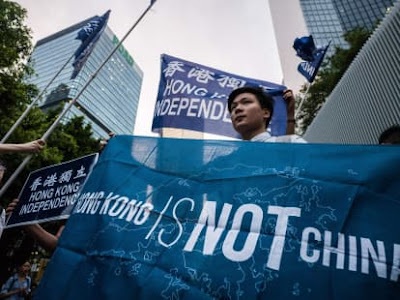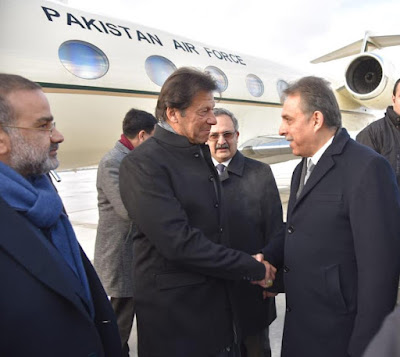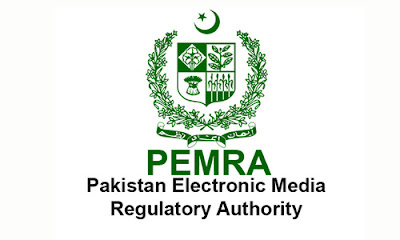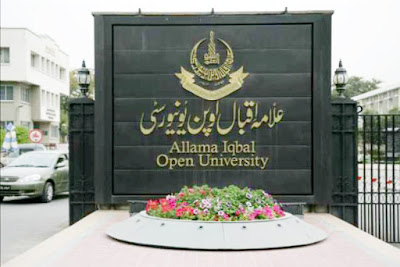 |
As Hong Kong tightens screws on rebellion, democracy moves further out of reach
|
HONG KONG, JAN 02 - "If this is the cup I must take, I will drink with no regret." Benny Tai was defiant and emotional as he faced the court.
Outside, he and his fellow defendants raised their fists and supporters displayed yellow umbrellas, the symbol of Hong Kong's beleaguered pro-democracy movement.
That movement is looking shakier than ever, as Tai and others begin the new year facing possible jail time -- up to seven years in prison -- for their roles in inspiring the 2014 Umbrella Movement, when tens of thousands of people took to the streets of the semi-autonomous Chinese city demanding elections free of Beijing's interference.
Several thousand people -- including former Umbrella leaders -- took part in a traditional New Year's march Tuesday, warning of "shrinking freedoms" and issuing a call for greater democracy.
They were joined by a small group of pro-independence demonstrators, some of whom said they faced harassment and intimidation ahead of the gathering.
On Wednesday, a spokesman for the Hong Kong government reiterated "its zero tolerance on 'Hong Kong independence'."
Police and organizers estimated the crowd to be roughly half that of last year's march, which will be a concern for the pro-democracy camp as they face a difficult 2019.
The prosecution of Tai and his co-defendants could pale in comparison to what some fear will happen if the Hong Kong government, under pressure from China, moves to pass a hugely controversial anti-sedition law.
Critics say this could criminalize swathes of opposition figures, ranging from pro-democracy activists and separatists to religious minorities and media figures critical of Beijing.
Unlikely icon
Tai, a mild-mannered Hong Kong University professor with a round clean-shaven face and thin-rimmed glasses, was a marginal political figure when, in January 2013, he proposed a civil disobedience campaign to pressure the government to introduce universal political suffrage — a long overdue promise of Hong Kong's de facto constitution known as the Basic Law.
Joined by fellow professor Chan Kin-man and Reverend Chu Yiu-ming, Tai launched "Occupy Central with Love and Peace" later that year, with a protest date set for October 2014.
"We shall be like preachers communicating enthusiastically with different communities to convey universal values such as democracy, universal and equal suffrage, justice and righteousness," he said at the time, adding he hoped Hong Kongers "will be willing to pay the price."
Hong Kongers were willing, and then some. In late September 2014, a student boycott movement led by Joshua Wong's Scholarism and the Hong Kong Federation of Students (HKFS) attempted to occupy Civic Square, a traditional protest venue outside Hong Kong's legislature.
After police used pepper spray and later tear gas on the mostly teenaged protesters, thousands of outraged Hong Kongers took to the streets.
The demonstration spiraled from there, with pro-democracy protesters occupying main roads in parts of the city for months, shutting down traffic and defying police and counter-protesters' attempts to remove them.
Police were finally able to clear the last protesters in December 2014, after 79 days.
Pyrrhic victories
If the Umbrella Movement was a high point for Hong Kong's democrats, it's been largely downhill from there.
Even apparent opposition successes, such as those in September 2016 legislative elections, have turned out to be pyrrhic victories.
Multiple lawmakers elected that year have since been turfed out of office on dubious legal grounds.
Wong, along with HKFS leaders Nathan Law and Alex Chow, was briefly jailed in 2017, and continues to face the threat of further prison time.
Other activists have also faced court hearings, as analysts warned of a deliberate "slow drip" of prosecutions designed to sap the pro-democracy movement.
Restrictions on political speech have grown, with the pro-independence Hong Kong National Party led by Andy Chan officially banned under public security laws, the first time these had been used against a political organization.
In the wake of that ban, Victor Mallet, a Financial Times journalist from Britain who had hosted a speech featuring Chan, had his application for a visa renewal rejected — a move which many saw as a blow against press freedom.
Activists hold flags which read "Hong Kong Independence" and "Hong Kong Is Not China" during a gathering outside the government headquarters to mark the fourth anniversary of mass pro-democracy rallies, known as the Umbrella Movement, in Hong Kong on September 28, 2018.
Political litmus tests are increasingly becoming the norm. The latest victim was Eddie Chu, who was recently barred from standing in a local poll because an election official ruled that he had "defended independence as an option to Hong Kongers," even though he himself disavowed separatism.
Bizarrely, Chu currently sits in the city's top legislature -- raising questions over whether he can retain that position if deemed unsuitable to run for a more junior one, or if he will become the latest pro-democracy lawmaker ejected from office.
These repeated setbacks have had an impact on the broader opposition movement, and protest fatigue is also a factor in a city which has become famous for them.
Numbers at anti-government demonstrations have fallen and many in the pro-democracy camp are seemingly at a loss on the way ahead in the face of an increasingly aggressive establishment.
In November, the opposition camp flunked a major test when its candidate failed by a wide margin to hang on to the legislative seat of Lau Siu-lai, who had herself been expelled in 2017.
As a result pro-democracy lawmakers were unable to regain veto power in the city's legislature, a development which could clear the way for the government to introduce its controversial anti-sedition legislation.
Worrying future
Article 23 of the Basic Law instructs the local government to "enact laws on its own to prohibit any act of treason, secession, sedition, subversion against the Central People's Government ... and to prohibit political organizations or bodies of the Region from establishing ties with foreign political organizations or bodies."
An attempt to implement such a law in 2003 drew half a million people onto the streets, demanding the resignation of Hong Kong's first Chief Executive Tung Chee-hwa. He stepped down less than two years later.
The protest is often pointed to as an example of the greater political freedoms which Hong Kongers enjoy compared to mainland Chinese.
Trams sit stranded as hundreds of thousands of people block the streets in a huge protest march against a controversial anti-subversion law known as Article 23 in Hong Kong in 2003.
Since then, Article 23 has loomed over Hong Kong politics, either a bogeyman or a panacea depending on one's ideological bent.
While the immediate effects of an anti-sedition law are likely overstated by its opponents (the police are probably not going to start rounding up pro-democracy legislators), it could have a major psychological and chilling effect in curbing a famously truculent body politic.
Self-censorship, while difficult to measure, is also seen as an increasing problem. As the cost of dissent has risen in Hong Kong, there are signs of a growing wariness among some sectors of society.
In November, two events featuring Chinese dissidents were called off amid apparent fears of repercussions from Beijing. One eventually went ahead after strong public pressure on the event venue to change course.
Article 23 of Hong Kong's Basic Law, an anti-sedition clause, has long loomed over the city's politics.
Chu, the lawmaker barred in December from standing in a local poll, accused the government of "moving the goalposts" to intimidate people against speaking out, lest their comments be used against them one day.
"The political logic ... comes from the Cultural Revolution, where everyone had to be thought police," he added.
In his closing statement to the court in December, Tai said the Occupy movement was ultimately intended to pursue justice and he had no regrets about standing up for Hong Kong's future.
"The purpose of civil disobedience is not to obstruct the public, but to arouse public concern to the injustice in society and to win sympathy from the public," he said.
"I am not afraid or ashamed of going to prison. If we were to be guilty, we will be guilty for daring to share hope at this difficult time in Hong Kong."
The court will hand down its verdict on April 9, 2019.
================














